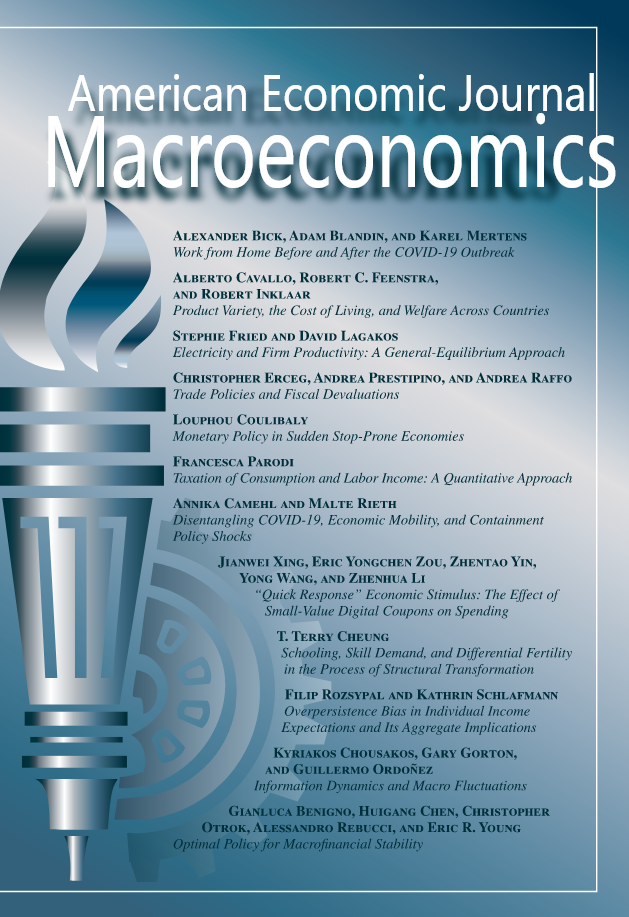劳动收入占比的下降:新的经验证据
IF 5.7
1区 经济学
Q1 ECONOMICS
引用次数: 23
摘要
我们使用时间序列技术来估计美国劳动收入份额下降的四个主要解释的重要性:企业加价上升,工人议价能力下降,投资特定技术增长增加,生产过程自动化程度提高。识别是通过从结构变化的程式化模型派生的限制来实现的。我们的研究结果表明,自动化是劳动收入占比的主要驱动因素,尽管在过去20年里,不断上涨的利润率发挥了重要作用。我们还发现了资本-劳动互补性的证据,表明资本深化可能提高了劳动收入占比。(jel d21, d43, e25, j51, l23, o33, o41)本文章由计算机程序翻译,如有差异,请以英文原文为准。
The Decline of the Labor Share: New Empirical Evidence
We use time series techniques to estimate the importance of four main explanations for the decline of the US labor income share: rising firm markups, falling bargaining power of workers, higher investment-specific technology growth, and more automated production processes. Identification is achieved with restrictions derived from a stylized model of structural change. Our results point to automation as the main driver of the labor share, although rising markups have played an important role in the last 20 years. We also find evidence of capital-labor complementarity, suggesting that capital deepening may have raised the labor share. (JEL D21, D43, E25, J51, L23, O33, O41)
求助全文
通过发布文献求助,成功后即可免费获取论文全文。
去求助
来源期刊

American Economic Journal-Macroeconomics
ECONOMICS-
CiteScore
8.20
自引率
1.70%
发文量
58
期刊介绍:
American Economic Journal: Macroeconomics focuses on studies of aggregate fluctuations and growth, and the role of policy in that context. Such studies often borrow from and interact with research in other fields, such as monetary theory, industrial organization, finance, labor economics, political economy, public finance, international economics, and development economics. To the extent that they make a contribution to macroeconomics, papers in these fields are also welcome.
 求助内容:
求助内容: 应助结果提醒方式:
应助结果提醒方式:


